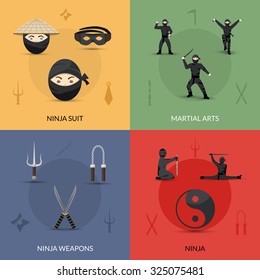The Effect Of Youthful Age Martial Arts Involvement On Scholastic Accomplishment And Attention
The Effect Of Youthful Age Martial Arts Involvement On Scholastic Accomplishment And Attention
Blog Article
Short Article Created By-Balling Serrano
Step onto the floor covering of knowledge and uncover the hidden power that youth martial arts have.
Like https://self-defense-moves-every88528.thenerdsblog.com/38003439/strengthen-your-self-confidence-the-total-source-for-women-s-self-defense-abilities -sharpened sword, the effect of these old techniques on scholastic performance and emphasis is a pressure to be reckoned with.
As you look into the depths of this discussion, you will find the possibility for improved cognitive capacities, boosted focus skills, and a significant boost in scholastic performance.
But the trip does not finish there, for truth keys exist within the web pages yet to be explored.
Boosted Cognitive Abilities
Improved cognitive abilities have been observed in young people that participate in fighting styles. By taking part in martial arts training, you can enhance your cognitive functions such as attention, emphasis, and memory. The physical activities and methods involved in martial arts need mental coordination and focus, bring about enhanced cognitive abilities.
Researches have shown that regular participation in fighting styles can improve data processing rate and executive features, which are crucial for academic success. Martial arts training also aids to improve analytic skills and decision-making capabilities, as experts learn to evaluate and react rapidly to different circumstances.
In addition, martial arts method advertises discipline and self-constraint, which are essential high qualities for reliable discovering and academic accomplishment.
Improved Concentration Abilities
How can martial arts educating boost your capability to concentrate?
Martial arts training can considerably improve your concentration abilities. Through the technique of various strategies and activities, you're called for to focus your interest on the task at hand. This constant interaction helps to educate your mind to stay existing and focused.
Martial arts also teach you to shut out distractions and preserve a high degree of focus also in demanding scenarios. The rep of activities and techniques throughout training aids to develop muscle memory, allowing you to do activities with precision and efficiency.
Additionally, martial arts training often incorporates psychological workouts such as meditation and mindfulness, which better enhance your capacity to concentrate and keep emphasis.
Boosted Academic Performance
Fighting style training can significantly improve your academic performance by fostering technique, focus, and confidence.
When you practice martial arts, you learn to set goals, create regimens, and manage your time successfully. These skills equate into enhanced study behaviors and far better academic efficiency.
Martial arts likewise educate you to stay concentrated and concentrate on the task available. relevant resource site improved ability to focus can significantly benefit your knowing experience, permitting you to take in and retain details better.
Moreover, the positive self-image obtained through martial arts can positively affect your scholastic performance. Believing in on your own and having a positive mindset can aid you overcome obstacles, take risks, and reach your full scholastic capacity.
Verdict
Youth martial arts have a substantial effect on academic efficiency and focus.
Study reveals that trainees that participate in martial arts experience improved cognitive abilities, boosted concentration skills, and enhanced academic performance.
As a matter of fact, a research study discovered that students that take part in normal fighting styles training have a 15% higher grade point average contrasted to those that do not.
This figure highlights the positive relationship between fighting styles and academic success, emphasizing the relevance of including such activities right into the lives of young individuals.
